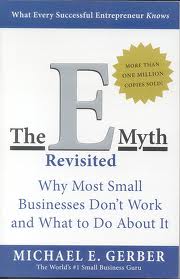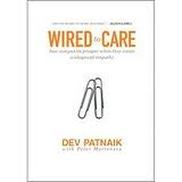 Next up on my philosophy reading was Philosophy: Who Needs It by Ayn Rand. This was a non-fiction survey of a number of philosophical, political, and cultural issues from the perspective of Objectivism. My biggest takeaway is the idea that philosophy affects culture and psychology at a profound level, in a way that we don't think about consciously and take for granted. The many catch phrases and colloquialisms we all use are grounded in the type of philosophy we inherently accept. This raises the importance of paying attention to one's language and listening carefully to what others say. It also makes philosophy a subject that's vitally important to everyone's understanding and living a good life -- not just a purely intellectual subject that's all about abstractions (the more common view of philosophy). The book spent a lot of time explaining why the philosophy of Kant is evil. I haven't personally read Kant, but I want to read it in the future to better understand this author's point of view. Overall, the book spent a lot of time in a negative tone, using strong negative words (the author apparently loves the words "bromide," "dribble," "louse," and "tripe" -- I think those words are funny too). I thought there was a bit too much time spent critiquing others' work and philosophies and not enough actually teaching/explaining her own. Nonetheless, I did learn a lot about how she thinks and what her philosophy represents (especially from the earlier chapters). Intro
3 metaphysical and man made
4 the missing link
1 Comment
 Back in college I took a marketing class that recommend The E-Myth Revisited by Michael Gerber as additional/optional reading material. I hadn't heard of it much besides that, but I kept it on my list for a while anyways. After seven years, I decided to finally give it a try. I found the book interesting and quite different from the entrepreneurship texts that have been become "popular" recently. It takes a much more "back to basics" approach and actually talks about how owners can make their businesses more predictable and better operationally by picking up some lessons from McDonald's. At first I was skeptical, but then I got the point. The "business development process" and the "business model franchise/prototype" approach actually seems like a good idea after reading the entire book about it. In a nutshell, it's about doing intense experimentation and optimization of every component of a business model in order to find what works and removes the owner and his or her whims from the picture as much as possible. I found a lot of parallels between this book and lots of what Steve Blank and Alex Osterwalder write about the business model canvas. Most of the book's examples were about retail establishments selling products. I'm curious how the book's lessons apply to service businesses, especially ones where talent and thinking are most of the product. The author said businesses should try to set themselves up so that systems run the show and you can hire the lowest skilled people possible; I'm wondering how whether that's valid across all types of businesses. I also found the book to be much more about life and figuring out what you want (and following your spirit and your own personal values) just as much as it is about business techniques (some of the scripts and hiring practices in the book were nice and tangible techniques that are directly applicable). I also liked how the author spoke (essentially) of gamification of the enterprise (that word wasn't around when he wrote this, but his observations are exactly its essence). I did find that at times the book was a bit too sales-y (in terms of promoting the author's consulting business), but it wasn't blatant. I recommend this book to anyone who's been heavily into all the lean startup stuff and wants a different perspective on things, and I'm curious what others think as well. Intro
Part 1 e-myth and small business in America Ch 1 entrepreneur myth
Ch 7
Ch 10 biz Dev process
 At the dschool, I heard about the book Wired to Care by Dev Patnaik, CEO of Jump Associates and professor at Stanford. The book focused on the subject of empathy, which is the first (and perhaps most difficult and critical) of the five steps of the design thinking process. I found the book enjoyable and easy to read, and I liked its many examples and stories of individuals at companies finding empathy with others. I found myself wanting more specific advice from the book on techniques for more effective empathy interviewing and observation, as well as how to turn those observations into ideas, how to best document them, and how to best communicate them with others. The book stayed too high level for me, even though it was interesting and well written. My biggest takeaway is that empathy and a deep connection with customers can make even "uninteresting" products strike a chord, and it can motivate people to work their hardest because they have a deeper goal in mind. I also think the lesson of "the map is not the territory" is very powerful and a great reminder of the importance of seeing things first-hand and doing your own thinking rather than just relying on second-hand information. Part 1 the case for empathy Ch 1 intro
Ch 4 creating affinity
Ch 8 reframe
|
Archives
June 2024
Categories
All
Subscribe |
 RSS Feed
RSS Feed
